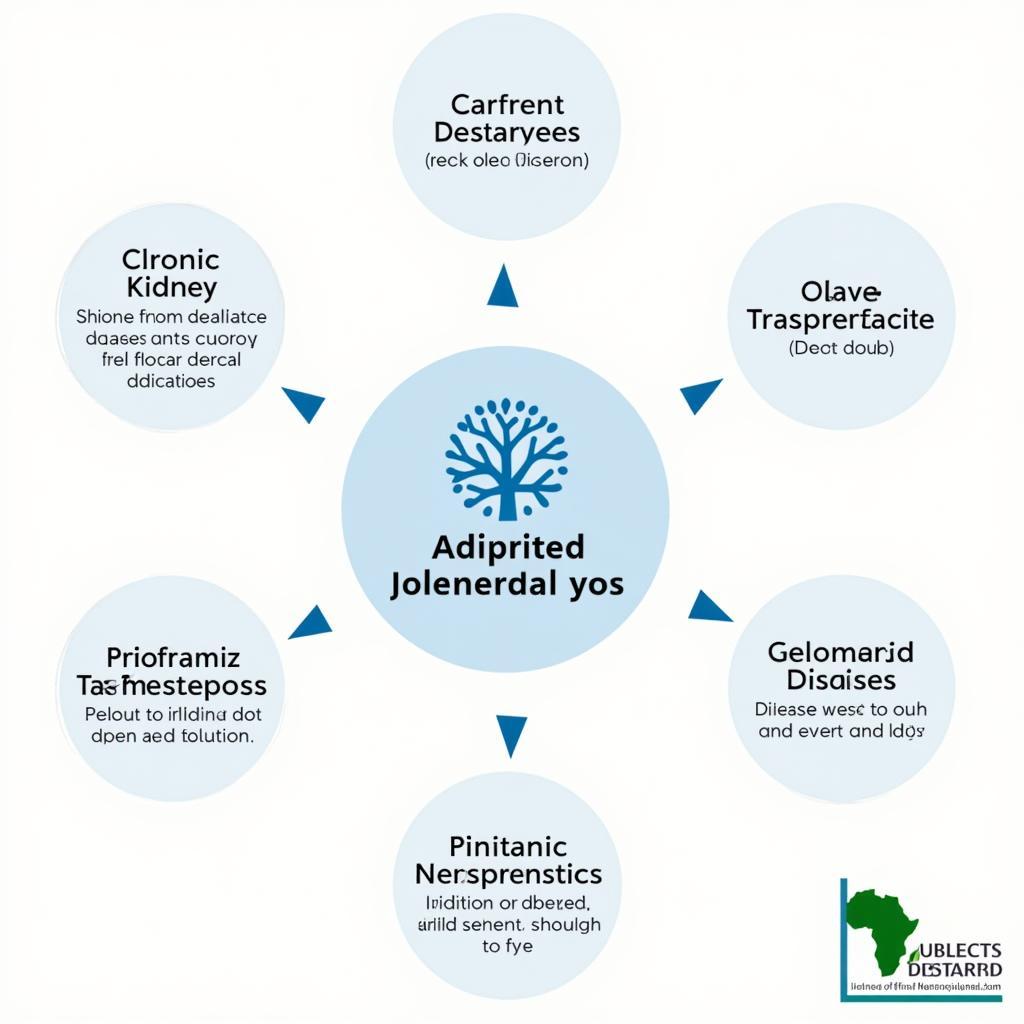African Journal of Nephrology Indexed in Scopus: A Guide to Quality Research
The African Journal of Nephrology, indexed in Scopus, represents a crucial platform for disseminating vital nephrology research originating from Africa. This journal plays a significant role in advancing medical knowledge, improving patient care, and fostering collaboration within the African nephrology community and globally. It offers valuable insights into the unique challenges and advancements in kidney health across the continent.
Understanding the Importance of Scopus Indexing for the African Journal of Nephrology
Scopus indexing is a mark of quality and recognition for academic journals. For the African Journal of Nephrology, its inclusion in Scopus signifies that the research published within its pages meets rigorous international standards. This indexing also enhances the journal’s visibility, making it accessible to a broader audience of researchers, healthcare professionals, and policymakers worldwide. The increased exposure contributes to greater impact and influence of the research published, ultimately leading to improvements in nephrology practices.
 African Journal of Nephrology Homepage Screenshot
African Journal of Nephrology Homepage Screenshot
The benefits of Scopus indexing extend beyond mere visibility. It allows for the tracking of citations, providing valuable data on the impact and reach of published research. This data is essential for evaluating the journal’s performance and identifying trends in nephrology research. Moreover, Scopus indexing facilitates collaboration among researchers by connecting them with relevant studies and experts in their field.
Exploring Key Topics Covered in the African Journal of Nephrology
The African Journal of Nephrology covers a diverse range of topics relevant to kidney health, reflecting the unique challenges and priorities faced by African populations. These include, but are not limited to:
- Chronic Kidney Disease (CKD): The journal publishes research on the prevalence, risk factors, and management of CKD in African settings, considering the impact of infectious diseases, limited resources, and genetic predispositions.
- Dialysis and Transplantation: Articles explore access to and outcomes of dialysis and kidney transplantation in Africa, highlighting the need for sustainable and affordable treatment options.
- Glomerular Diseases: Research on various glomerular diseases, including those specifically prevalent in Africa, is featured, contributing to a better understanding of their pathogenesis and management.
- Pediatric Nephrology: The journal addresses the unique challenges of kidney diseases in children, exploring diagnostic approaches, treatment modalities, and long-term outcomes in African contexts.
- Hypertension and Kidney Disease: The interplay between hypertension and kidney disease is a significant focus, with research examining the prevalence, management, and impact of these interconnected conditions in African populations.
 Key Research Topics in African Nephrology
Key Research Topics in African Nephrology
Contributing to the African Journal of Nephrology
Researchers interested in contributing to the African Journal of Nephrology can find detailed guidelines on the journal’s website. The journal welcomes original research articles, review articles, case reports, and letters to the editor. All submissions undergo a rigorous peer-review process to ensure the quality and integrity of the published research.
Submission Guidelines for Authors
Authors are encouraged to adhere to the journal’s specific formatting guidelines, which include instructions on word limits, referencing styles, and figure preparation. The journal also requires authors to disclose any potential conflicts of interest and to obtain ethical approval for their research.
“The African Journal of Nephrology provides a vital platform for researchers to share their findings and contribute to the advancement of nephrology in Africa,” says Dr. Adebayo Olufemi, a renowned nephrologist from Nigeria. “Its inclusion in Scopus further elevates its standing and ensures that the research reaches a global audience.”
Conclusion: The African Journal of Nephrology’s Impact on Global Health
The African Journal of Nephrology, indexed in Scopus, plays a crucial role in advancing nephrology research and improving kidney health outcomes in Africa. By disseminating high-quality research, promoting collaboration, and addressing the unique challenges faced by African populations, the journal makes a significant contribution to global health. Its continued growth and development are essential for addressing the growing burden of kidney disease worldwide.
FAQ
-
What is the impact factor of the African Journal of Nephrology? The impact factor can fluctuate, and it’s best to check the latest Scopus data for the most current information.
-
What types of articles are published in the journal? The journal publishes original research articles, review articles, case reports, and letters to the editor.
-
How can I submit my research to the African Journal of Nephrology? Detailed submission guidelines are available on the journal’s website.
-
Is there a publication fee for the African Journal of Nephrology? This information is typically available on the journal’s website, often in the author guidelines section.
-
How long is the peer-review process? The review time can vary; it’s advisable to check the journal’s website for estimated timelines.
Need more information? Explore these related articles:
- Understanding the Importance of Nephrology Research in Africa
- The Growing Burden of Kidney Disease: Challenges and Opportunities
- Innovations in Dialysis and Transplantation in Resource-Limited Settings
Call to action: For any further assistance, please contact us at Phone Number: +255768904061, Email: kaka.mag@gmail.com or visit our office at Mbarali DC Mawindi, Kangaga, Tanzania. We have a 24/7 customer service team.


